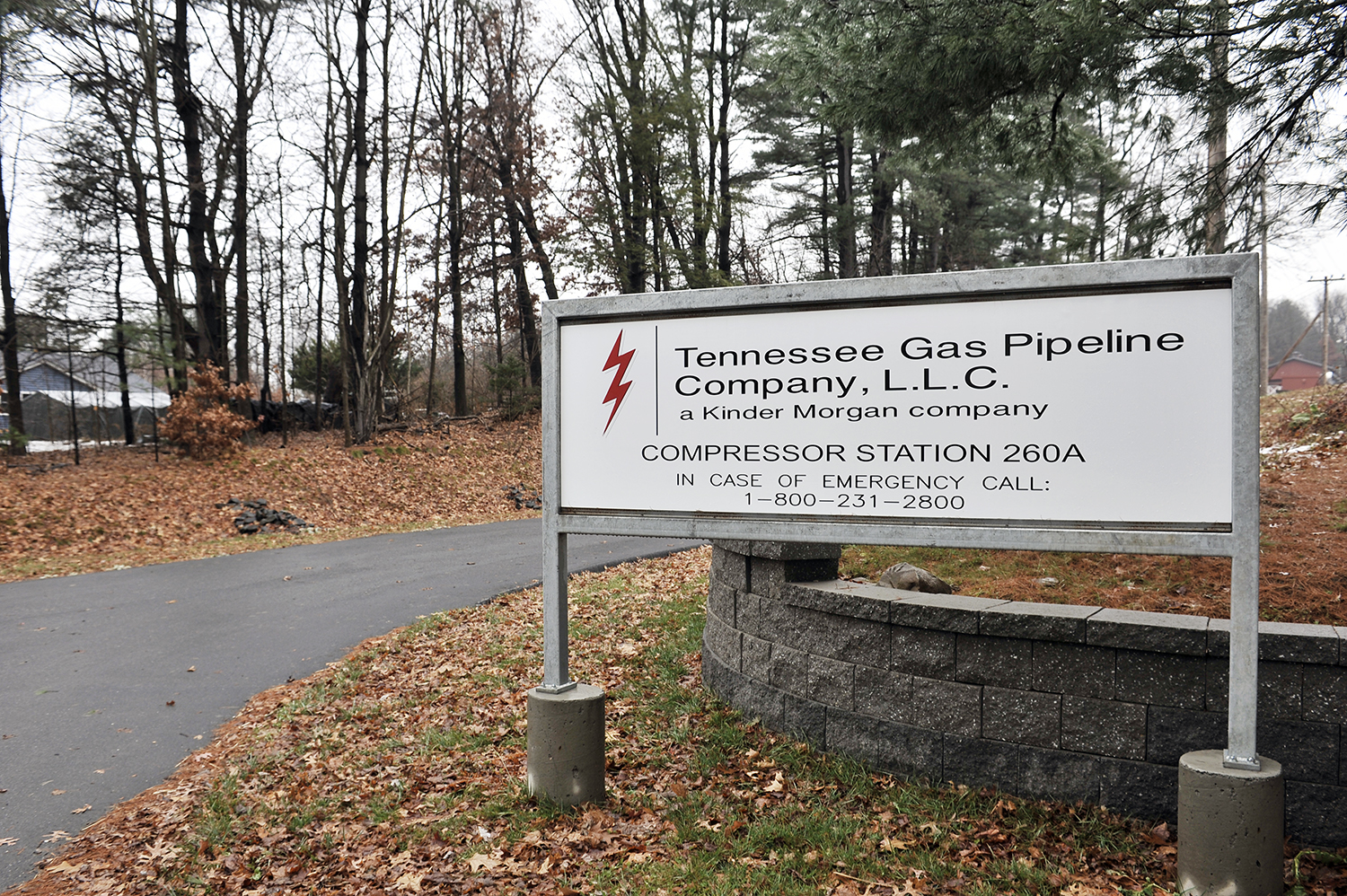By RICHIE DAVIS
Greenfield Recorder Staff
AMHERST — Farmers who sign agreements with Tennessee Gas Pipeline granting easements for the company’s proposed Northeast Energy Direct project will be “made whole,” according to the company. But, during the annual meeting Thursday of the Massachusetts Farm Bureau Federation, they also were cautioned to understand all the ramifications of those contracts.
About 30 people attended the session, during which representatives of Tennessee Gas Pipeline parent Kinder Morgan assured them repeatedly that they intend to “make you whole” for any losses as a result of the $5 billion project proposed to the Federal Energy Regulatory Commission.
The preferred path of the pipeline, which is scheduled to begin providing as much as 2.2 million cubic feet of Marcellus shale gas to New England beginning in the fall of 2018, is expected to pass through Plainfield, Ashfield, Conway, Shelburne, Deerfield, Montague, Erving and Northfield before passing into New Hampshire on its way to Dracut, according to a new FERC filing scheduled for Monday. That path is expected to be 90 percent along electric power-line rights of way, spokesman Allen Fore told Thursday’s gathering at the University of Massachusetts that began the Farm Bureau’s two-day conference.
Fore and Jim Hartman, Kinder Morgan right-of-way agent, said the pipeline would be buried about 4 feet underground, with a 50-foot right-of-way required and a 100-foot right-of-way during construction, during which topsoil would be segregated and protected and rocks larger than about 4 inches would be removed.
The permanent right-of-way, Hartman said, would need room for mowing and mechanical trimming, with trees trimmed to allow for aerial surveillance and inspections on foot. It could also leave room for possible future expansion, he said.
Continued agricultural plantings could be allowed, he said, particularly if they are annual vegetable crops, but fruit trees, for example, would need to be removed “because trees and pipelines don’t go together.”
If the route causes loss of income, Hartman said, the company would work with the farmer to “make you whole” for the loss.
One Northborough fruit grower, Maurice Tougas, whose 120-acre orchard lies along a planned lateral line coming off the Tennessee Gas Pipeline’s main route, said he is “a little concerned” because he frequently has to drive posts 4 feet into the ground.
When Hartman advised him to call DigSafe before he drives posts into any area that’s questionable, Tougas responded, “A hundred twenty acres, a 30-ton excavator, I don’t call DigSafe every time I dig in my orchard.”
Hartman responded that anyone can call for assistance from Kinder Morgan’s office in Agawam.
“You have a shared interest in the use of your land the same that we do,” he said.
Paul Harris said he has had a Tennessee Gas Pipeline lateral line going through his farm in Lunenberg since 1952, but when the company wanted to expand it from 8 inches to 12 inches a few years ago, “They wanted to give me $1,000, they wanted a 50-foot right of way.” But when he was advised that he did not have an existing right-of-way and refused to sign the contract, he was taken to court and spent $6,000 fighting the case.
“You can’t stop ’em, and I don’t even know if you can get just compensation from them,” Harris complained. “This is not all apple pie, I’m telling you,” Harris said, recounting problems with the way his property was left by the pipeline company. “You’re trespassing! You don’t have a legal easement! I’m telling them what they have to look forward to.”
Asked what responsibility the pipeline company would take for wells near the pipeline route, Hartman said it would do testing before and after the pipeline is constructed, and would correct any problems that occur.
Nancy Caisse of Bolton, whose horse and hay farm lies close to the proposed route of a lateral line, asked, “How long are we allowed to come back and fix things. We live on ledge. It takes a long time to (affect) that well sometimes. What’s your time line coming back and fixing the problem?”
When project manager Mark Hamarich said the timing can be extended over several years after construction, state Department of Food and Agriculture attorney Tara Zadeh told the group, “What’s really important is for you to understand what’s in (the contract) and if you negotiate anything, work with them, or hire an attorney, and make sure that your particular needs are in that agreement for the time that you’re concerned with. You guys need to make sure you’re taking care of yourselves on your own property.”
Although the farm bureau, with about 6,000 members, has so far taken no position on the proposed pipeline, Caisse drafted a resolution for the organization to consider during its annual business meeting Friday that would declare its opposition to the project and any of its lateral lines.


